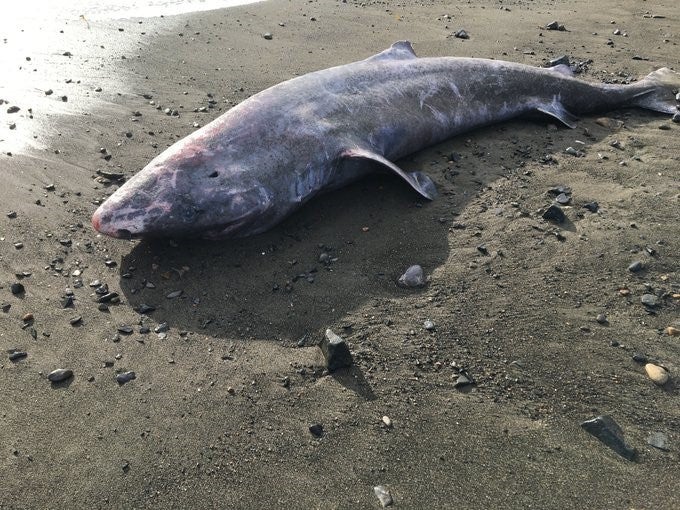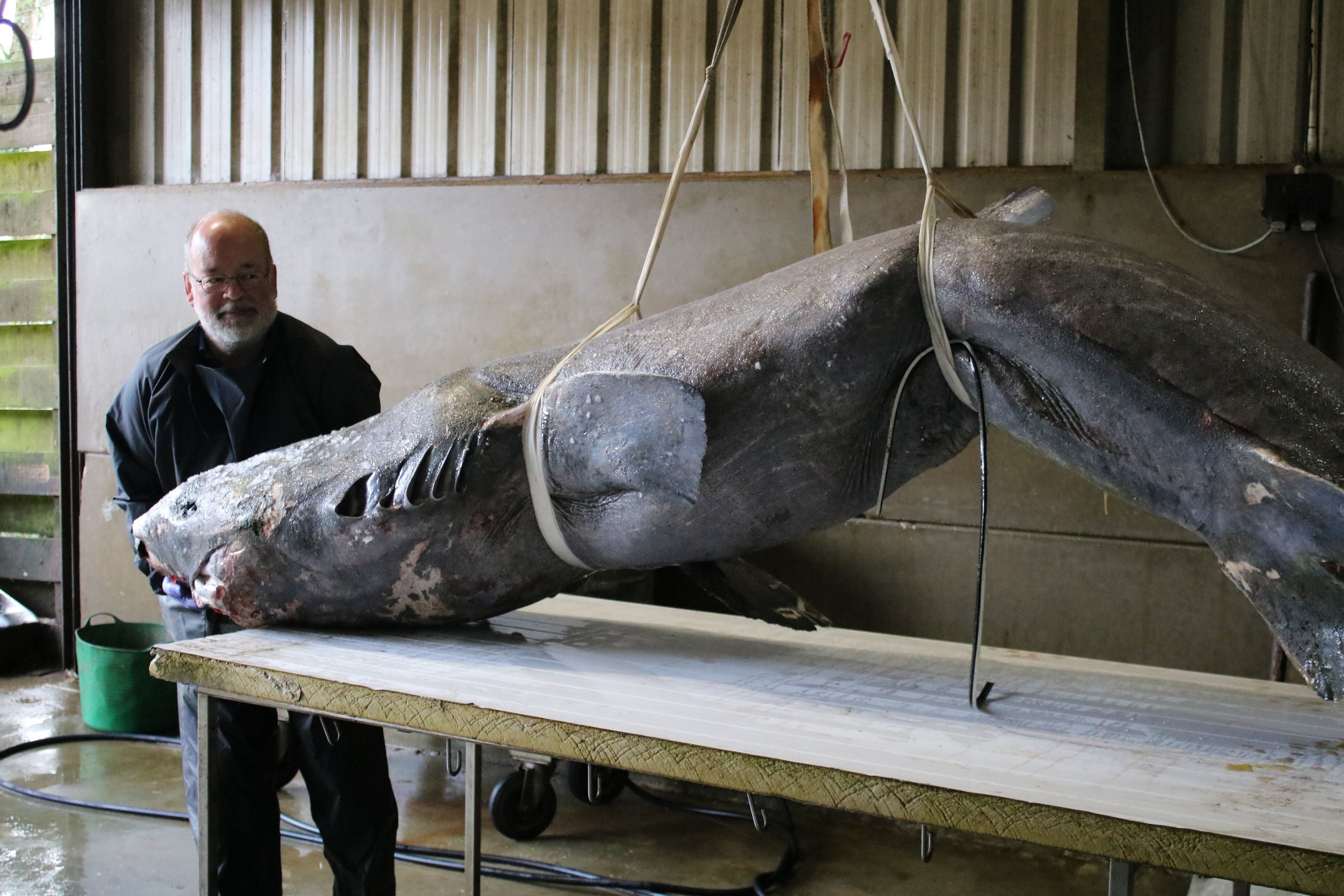Rare Greenland shark that can live for 500 years washes up on Cornwall beach
Shark is thought to have died from meningitis-like infection

Your support helps us to tell the story
From reproductive rights to climate change to Big Tech, The Independent is on the ground when the story is developing. Whether it's investigating the financials of Elon Musk's pro-Trump PAC or producing our latest documentary, 'The A Word', which shines a light on the American women fighting for reproductive rights, we know how important it is to parse out the facts from the messaging.
At such a critical moment in US history, we need reporters on the ground. Your donation allows us to keep sending journalists to speak to both sides of the story.
The Independent is trusted by Americans across the entire political spectrum. And unlike many other quality news outlets, we choose not to lock Americans out of our reporting and analysis with paywalls. We believe quality journalism should be available to everyone, paid for by those who can afford it.
Your support makes all the difference.A Greenland shark that can live for up to 500 years washed up on a beach in Cornwall after it died of meningitis, a post-mortem has revealed.
The discovery of the creature, which usually lives deep below the surface of the Arctic and North Atlantic oceans and has the longest known lifespan of all vertebrate species, marks the first instance of the infection being traced in Greenland sharks.
The 100-year-old, 13ft-long female was found stranded near Cornwall’s Newlyn Harbour on 13 March. She was released back into the sea but was later found dead, sparking its autopsy by the Cornwall Marine Pathology Team.
The shark is thought to have died from a meningitis-like infection of its brain, pathologists at the Zoological Society of London’s (ZSL) Cetacean Stranding Investigate Programme determined.
This is the first time a Greenland shark is thought to have been killed by a brain-related disease, the researchers said.
The infection also offers up an explanation as to why the animal was so far from its usual habitat in deep Arctic and North Atlantic waters up to 8,684 feet (2,647 meters) below the surface.
James Barnett, a pathologist for the Cornwall Marine Pathology Team, said: “During the post-mortem examination, the brain did look slightly discoloured and congested and the fluid around the brain was cloudy, raising the possibility of infection.

“This was then confirmed on microscopic examination of the brain (histopathology).
“A species of Pasteurella, a bacteria, was isolated from the fluid and this may well have been the cause of the meningitis.
“The shark’s body was in poor condition and there were signs of haemorrhage within the soft tissue around the pectoral fins which, coupled with the silt found in her stomach, suggested she may well have live stranded.
“As far as we’re aware, this is one of the first post-mortem examinations here in the UK of a Greenland shark and the first account of meningitis in this species.”
Rob Deaville, project lead said: “This unfortunate and extraordinary stranding has allowed us to get an insight into the life and death of a species we know little about.
“Discovering that this shark had meningitis is likely a world’s first, but the significance of this in terms of any wider stressors is unknown.
“Ultimately, like most marine life, deep sea species such as Greenland sharks may also be impacted by human pressures on the ocean but there is not enough evidence at this stage to make any connections.’
“Huge thanks are owed to the volunteers of Cornwall Wildlife Trust Marine Strandings Network and all those who spotted and brought the body to shore.
“This was an exceptional collaborative effort by all involved and was a unique opportunity to learn more about the life of this cryptic and endangered deep-water shark.”
The investigation into the post-mortem of the Greenland shark is ongoing and a research paper into the matter will be published in due course.
Join our commenting forum
Join thought-provoking conversations, follow other Independent readers and see their replies
Comments